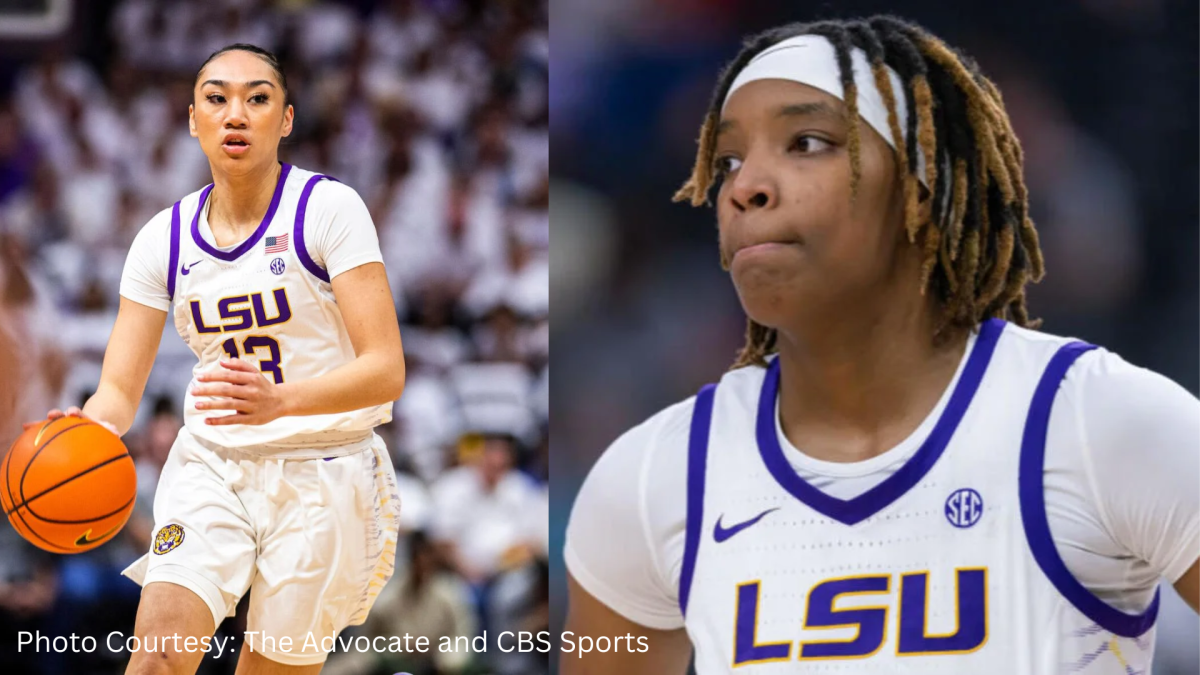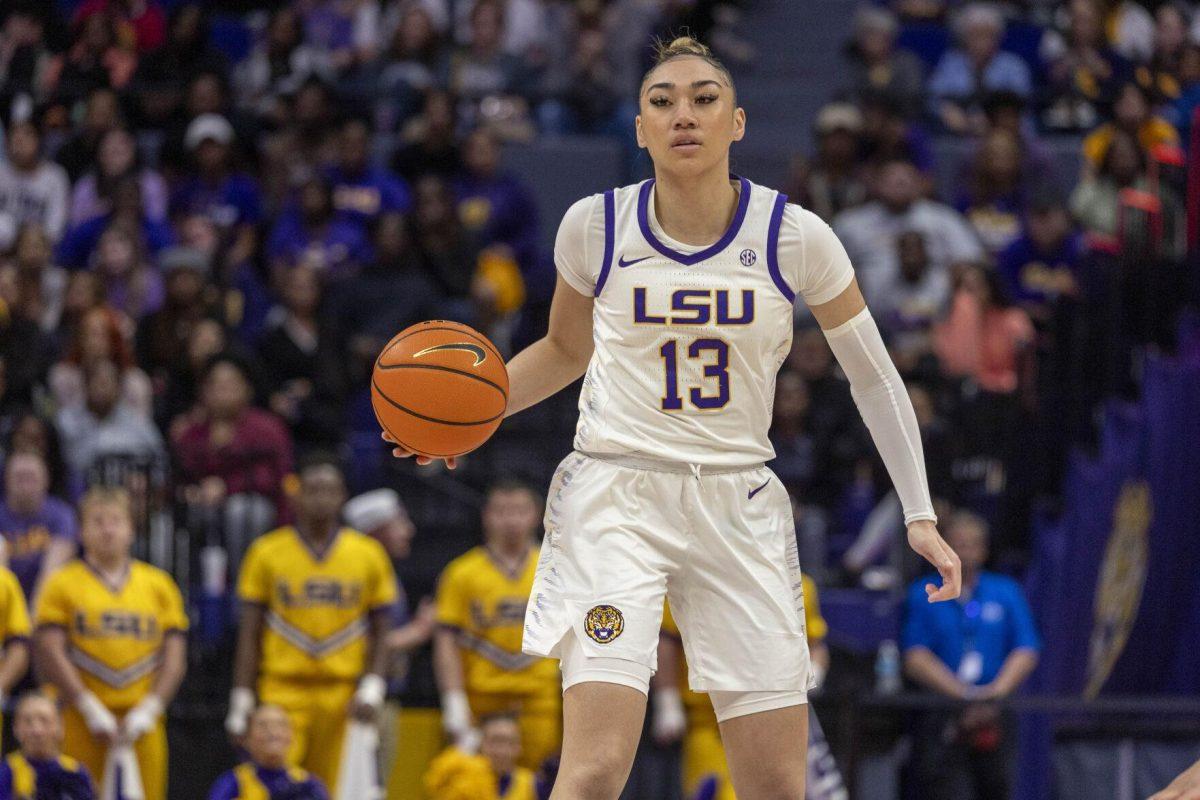The top floor of the Athletic Administration watches over the various LSU athletic venues from high upon its perch.
It’s only fitting it houses the five offices responsible for monitoring more than 450 LSU student-athletes, ensuring they don’t break any of the seemingly endless number of rules and regulations the NCAA imposes.
The compliance department is responsible for everything from making sure boosters don’t give money to recruits to confirming that programs provide only NCAA-approved snacks — and yes, there is an NCAA rule that prohibits schools from providing certain spreads such as cream cheese or jelly for athletes’ bagels and fruit.
“I would refer to what we do as being a defense attorney for the athletic department,” said Andrew Donovan, education and communication director for compliance at LSU. “Sometimes we have to be the bad guy, but our job is to be a resource for our coaches and boosters to try and find ways around the rules and find a way to work within the rules.”
But most people don’t hear about the department until it’s too late.
“Usually if you get called by compliance, it’s not a good thing,” joked LSU gymnastics coach D-D Breaux. “Nobody wants to get that phone call.”
Compliance departments typically receive anywhere from 20 to 50 infraction reports a year from fans, other compliance departments and NCAA and Southeastern Conference offices.
The five-person staff must then determine which reports are credible and need to be reported to the NCAA.
“You’re going to find in most Division I schools and in your big BCS conferences things are going to happen,” Donovan said. “People are going to make mistakes. It’s our responsibility as the compliance department to show the NCAA that we are monitoring it.”
According to Donovan, compliance departments work in a type of tier system.
The NCAA regulations are the bare minimum that all institutions must follow. From there, conferences may have stricter regulations with particular institutions possibly being even stricter.
There are also tiers involving the seriousness of infractions within the hierarchy.
A secondary violation is defined by the NCAA as “a violation that is isolated or inadvertent in nature, provides or is intended to provide only a minimal recruiting, competitive or other advantage and does not include any significant impermissible benefit.”
According to Donovan, too many secondary violations can add up to a major violation, but a violation such as a booster giving a recruit money would automatically be a major violation.
The NCAA defines a booster as “representatives of the institution’s athletic interests.” Typically, this means someone who donates money to the athletic department.
The most common rules violations, according to Donovan, are infractions committed by boosters illegally contacting recruits.
“If a booster does something wrong that puts the institution in jeopardy, sometimes we have to say, ‘You can’t be around the program anymore,’” Donovan said. “We have sanctions against us and the NCAA is going to expect us to uphold this. We have great fans here at LSU, but our fans understand that if they do things improperly, they will make winning here much more difficult.”
Schools like Miami and Southern California are two of the most recent victims of booster-related sanctions that have taken a visible toll on the programs, with their football teams going 7-5 and 7-6, respectively.
The infraction that LSU fans may be the most familiar with in recent years though is the drug policy.
According to Donovan, the NCAA does not require schools to report failed drug tests or even have drug tests at all. The only requirement is that schools have a policy and follow it.
Hypothetically, if a school decides not to test its athletes, as long as players pass NCAA drug screenings, no one would ever hear anything.
LSU’s drug policy is a three-strike system, with the first failed test simply resulting in more random screenings and various other minor punishments. The second failed screening results in a “15 percent loss in countable competitive contests,” — most notably the recent punishment handed down to former football players Tyrann Mathieu, Tharold Simon and Spencer Ware in 2011. The third failed test means a mandatory one-year suspension, with reinstatement at the discretion of the administration — Mathieu in 2012.
The NCAA’s policy is much simpler, with the first failed test resulting in a one-year suspension and the second is the removal of all eligibility.
If an athlete or coach breaks one of numerous regulations they are expected to follow, the compliance department doesn’t act as executioner, but rather the investigative bureau.
“You need the support of the athletic director, the chancellor, the athletic administration because they’re the ones at the end of the day who are going to have to lay the hammer down,” Donovan said. “Our job is to investigate … and if a coach doesn’t heed a warning, we have to file a violation with the SEC or NCAA and possibly send a letter of reprimand or impose a self penalty in the hopes that the NCAA doesn’t.”






